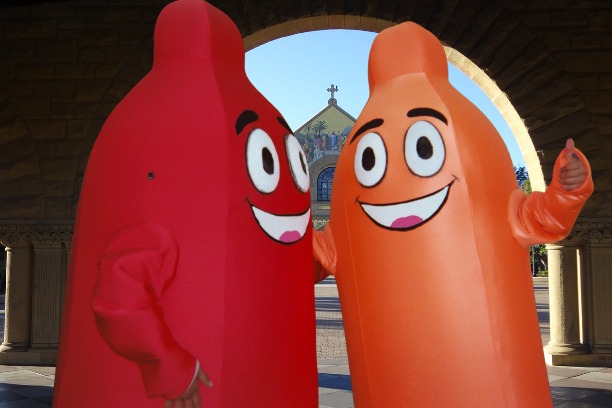On Sept. 25, in a real-life story, The New York Times reported that Vietnamese officials had confiscated over 300,000 used condoms that had been “cleaned” and put up for sale. An invoice procured by The Occasionally reveals the Vaden Health Center to be one of the unlucky buyers. Since then, Vaden staff have been wondering — was that deal really worth it?
We posed this question to Vaden Director, Dr. Kyle Midia, who paused to consider it.
“I don’t think you understand how good of a deal this was,” Dr. Midia said. “Even for not being in ‘mint-condition,’ they were still pretty cheap.”
However, it should be noted that Dr. Midia refused to explain how he knew this or what products he was comparing it to, instead staying silent for three full minutes.
For community comment, we turned to Stanford student and ultra-proud member of the [REDACTED] fraternity, Richard Little.
“I guess I’m just really confused,” said Little. “How did I not come up with this idea first?”
A condensed version of the questions he went on to ask us include: Where were they getting them? Was it a charity donation-box-type situation or more of (and we’re paraphrasing substantially) the homemade variety? What do you think the price-point was? And, is there now a gap in the market?
Showing a similar misjudgment of the severity of this incident, Dr. Midia refused to say how long this “second-hand” (if only) business has been supplying the University, even though there are numerous identified health risks. These risks — as reported by a 2018 study — include gonorrhea, syphilis and a deep spiritual shame personified as your seventh-grade health/gym teacher that will follow you until you either die or do something worse — like kill a man or start DJing.
“It’s better if you don’t think about it,” said Dr. Midia, misunderstanding the role of a newspaper. “Especially, since, there was really no way to tell that the, um — how do I say this?” He then, somehow, carefully chose the following words: “There was no way to tell that the ‘raincoats had been through a monsoon.’”
And, for the record, there was a way to tell. The only flavor the condoms came in was “Goodwill.”
Finally, per his request, we checked back in with Little to find out how learning of this disaster had impacted him. And, as we should have seen coming, its impact was in inspiring his latest entrepreneurial venture: a boutique condom resale company.
“Don’t worry, though,” Little said, “half of all proceeds are going to various Christian-based children’s charities. So, if you’re interested in buying or donating, please visit www.TheSecondComing.com.”
On the matter, Stanford officials released the following statement: “We are proud of Mr. Little for displaying such an innovative spirit by forging connections between complete strangers during such a hard and lonely time. And, above all, for doing so in the name of charity.”
So, as of today — and at even more of a discount — Little will be supplying all of Stanford’s condom needs. We are equal parts terrified and impressed.
Editor’s Note: This article is purely satirical and fictitious. All attributions in this article are not genuine, and this story should be read in the context of pure entertainment only.
Contact Emma Parsons at eparsons ‘at’ stanford.edu.
